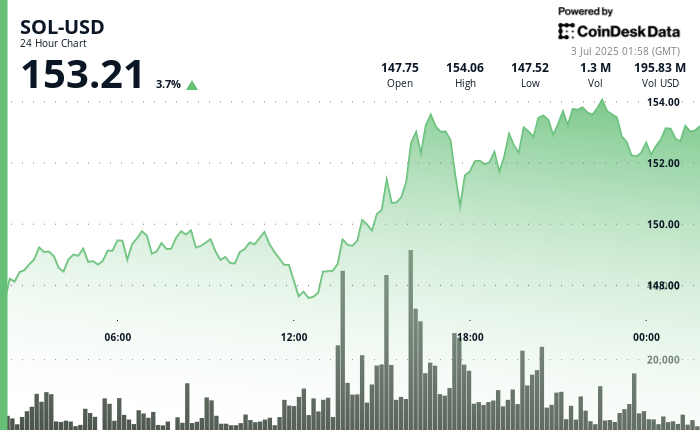
The
price
of
bitcoin
(BTC)
fell
another
4.5%
on
Thursday,
tumbling
to
its
lowest
price
in
a
month
at
$40,800.
The
decline
was
roughly
matched
by
the
CoinDesk
20
Index,
which
tracks
the
world’s
largest
and
most
liquid
cryptocurrencies,
now
lower
by
4.6%
over
the
past
24
hours.
Since
the
newly
approved
spot
bitcoin
ETFs
began
trading
on
Jan.
11,
the
price
of
bitcoin
–
after
a
very
brief
spike
higher
–
is
now
lower
by
about
13%.
Looking
at
data
updated
as
of
yesterday,
the
new
spot
ETF
issuers
have
added
more
than
68,000
bitcoin
in
their
first
week
of
action.
Grayscale’s
GBTC,
however,
has
shed
roughly
40,000
bitcoin,
leaving
a
net
addition
of
about
28,000
to
bitcoin
ETFs.
K33
Research
Analyst
Vetle
Lunde
said
that
long
before
U.S.
regulatory
approval,
there
were
already
plenty
of
spot
bitcoin
products
trading
around
the
world.
In
fact,
he
said,
exchange-traded
products
(ETPs)
globally
currently
hold
more
than
864,000
bitcoin,
putting
in
some
perspective
the
relatively
minor
addition
–
so
far
–
of
the
U.S.
vehicles.
Lunde
went
on
the
note
that
in
addition
to
the
GBTC
exits,
Canadian
and
European
ETPs
have
seen
sizable
outflows
over
the
past
week
as
investors
take
profits
and/or
put
money
into
the
cheaper
U.S.
ETFs.
And
then
there’s
the
ProShares
Bitcoin
Strategy
ETF
(BITO)
which
recently
had
more
than
$2
billion
in
assets
under
management.
While
this
futures-based
ETF
held
no
bitcoin,
it
accounts
for
36%
of
bitcoin
contract
open
interest
at
the
CME
Group’s
exchange,
according
to
Lunde.
Together,
futures-based
bitcoin
ETFs
account
for
48%
of
all
bitcoin
open
interest
at
CME,
he
added.
As
BITO
and
the
other
futures-based
funds
see
outflows,
said
Lunde,
they
need
to
close
(sell)
their
long
positions
in
the
futures
market,
potentially
putting
further
pressure
on
bitcoin
prices.
